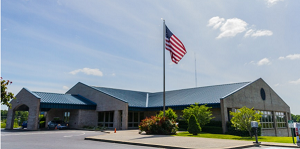Mountain Connect 2022 is May 23-25 in Keystone, Colorado
This year's Mountain Connect conference begins Monday, May 23rd and runs through Wednesday, May 25 in Keystone, Colorado. The conference's self-stated goal is to "move our western US communities forward by providing relevant and targeted content to help them make the most effective decisions as they build new or expand existing telecommunications infrastructure that enable the long-term vision of a community."
It will feature panels on navigating state and federal funding, telehealth, disaster resilience, digital inclusion, tribal connectivity, construction challenges, and communications and technology standards.
We'll also get to hear an array of conversations with local leaders, talking about everything from revitalizing downtowns with new municipal broadband infrastructure, to partnerships, to open access, to marketing, to managing subscriber expectations. See the full agenda here.
Anchoring the panels will be communities like Boulder, Colorado, Loveland, Colorado, and Detroit, Michigan, with familiar faces and industry veterans helping to break things down in clear ways, including Peggy Schaffer (ConnectME), Joshua Edmonds (Director of Digital Inclusion, Detroit), Brian Snider (Lit Communities), Bruce Patterson (EntryPoint Networks), and Gary Bolton (Fiber Broadband Association).
ILSR's DeAnne Cuellar will be participating on a digital inclusion panel moderated by NDIA's Paolo Balboa with Colorado Department of Labor's Katherine Keegan. Likewise, Christopher Mitchell will moderate a panel with Peggy Schaffer, Eric Forsch (Idaho Commerce) and Veneeth Iyengar (ConnectLA) to talk about how states will use the BEAD money. See the full slate of speakers here.




